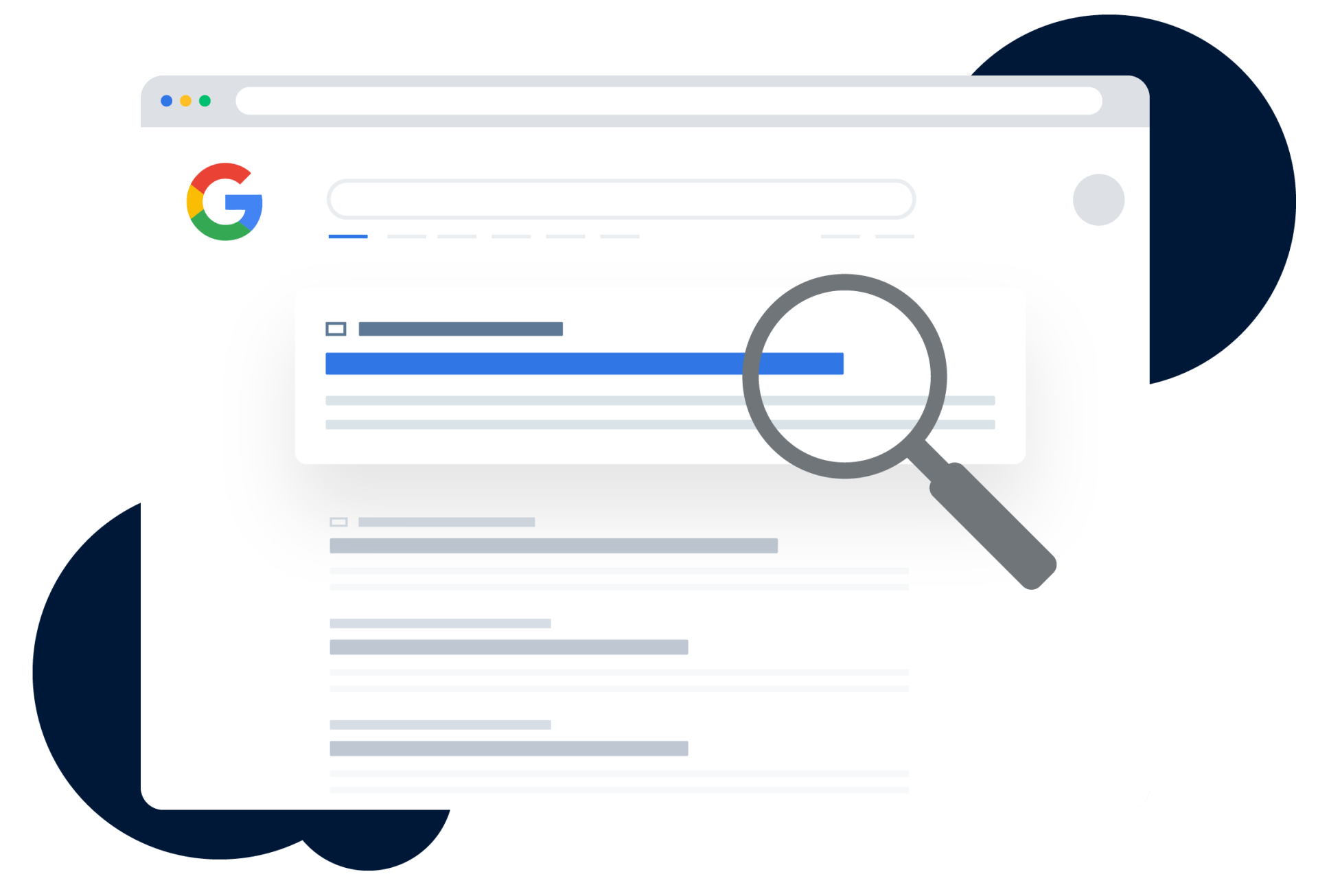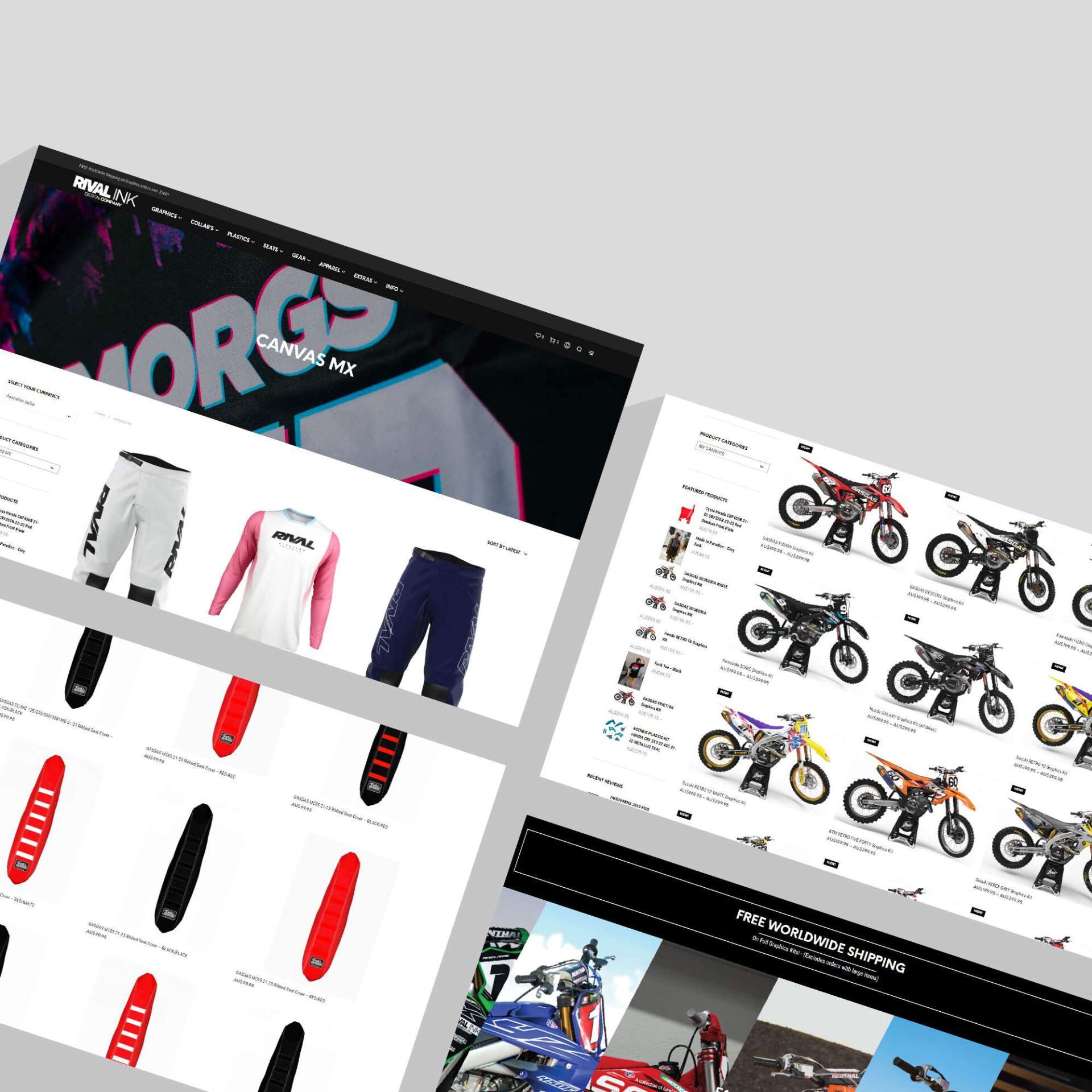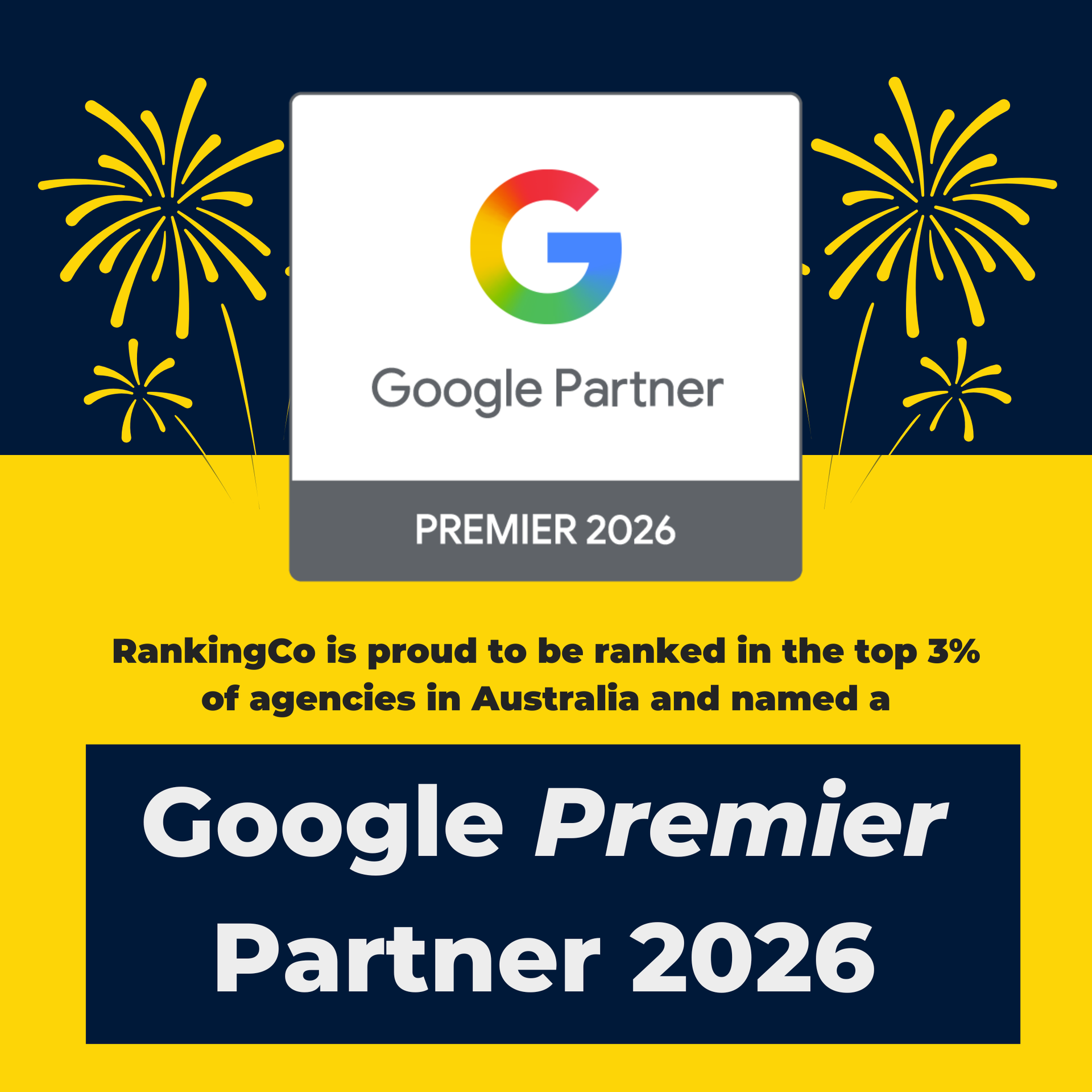Planning to Win: How We Craft Your Digital Marketing Strategy

Why Your Business Needs a Digital Marketing Plan

A digital marketing plan is a comprehensive document that outlines how your business will use online channels to achieve marketing goals within a specific timeframe. It includes your objectives, target audience, budget, channels, and measurement metrics.
What is a digital marketing plan?
A digital marketing plan is a structured roadmap that:
- Defines clear marketing goals and objectives
- Identifies your target audience and digital channels
- Allocates budget and resources
- Sets timelines and milestones
- Establishes KPIs to measure success
Did you know that 47% of companies don't yet have a planned digital marketing strategy? Even more concerning, only 17% of businesses clearly define their digital marketing strategies. Without a clear plan, you're essentially building a house from the roof down—it simply doesn't work.
A well-structured digital marketing plan helps you:
- Provide clear direction for all marketing activities
- Identify and understand your target audience
- Maximise ROI by focusing resources on high-impact activities
- Align marketing with broader business goals
- Improve decision-making through data-driven insights
In today's digital landscape, where 67.5% of the world's population (5.52 billion people) use the internet and 65% of digital sales happen on mobile devices, having a strategic approach isn't just helpful—it's essential.
I'm Amber Porter, CEO of RankingCo, and I've helped countless businesses transform their online presence through effective digital marketing plans that drive measurable results. My approach combines data-driven insights with practical strategies that work in the real world, not just in theory.

Strategy, Plan, Campaigns & Tactics—Know the Difference
Let's clear up something that confuses many business owners I meet: the difference between strategy, plans, campaigns, and tactics. Understanding these distinctions isn't just academic—it can save you thousands in misaligned marketing efforts and countless hours of frustration.
Think of your marketing hierarchy like planning a road trip. Your strategy is deciding on your final destination (maybe beautiful Byron Bay). Your digital marketing plan is mapping out the entire journey—which highways to take, where you'll stop for fuel, and how much you'll budget for the trip. Campaigns are like the different legs of your journey, while tactics are the specific turns and lane changes you make along the way.
Many of our Brisbane clients find frameworks like RACE (Reach, Act, Convert, Engage) or SOSTAC (Situation, Objectives, Strategy, Tactics, Action, Control) incredibly helpful for organising their thinking. These aren't just fancy acronyms—they're practical scaffolds that help ensure you're covering all bases in your digital marketing plan .
Why a clear digital marketing plan matters
Here's a stat that might surprise you: marketers who document their plans are 331% more likely to report success than those who don't. Yet almost half of companies we talk to are operating without a defined digital strategy. That's like trying to steer Sydney with your eyes closed!
Without a solid plan, you'll likely face:
- Team members pulling in different directions
- Budget disappearing into activities with minimal impact
- Slow responses to market changes and opportunities
- Difficulty measuring what's actually working
- Marketing activities that don't support what your business actually needs
Linking your digital marketing plan to business strategy
Your digital marketing plan shouldn't live in isolation from your broader business goals. When we work with clients at RankingCo, we always start by understanding their business strategy before crafting their digital approach.
Start with SMART objectives that flow directly from your business goals:
If your business aims to increase market share by 15% this financial year, your digital marketing plan might include generating 500 qualified leads monthly from digital channels at a maximum cost per lead of $50.
Your value proposition should sit at the heart of your plan. It answers the critical question potential customers always ask (even if silently): "Why should I choose you instead of your competitors?" At RankingCo, we help clients clarify this message so it resonates throughout their Digital Marketing Services in Brisbane and beyond.
When presenting your plan to stakeholders, brevity wins. A one-page summary that people actually read beats a 30-page report that collects digital dust. Keep it concise, jargon-free, and focused on outcomes that matter to your business.
The Essential Building Blocks of a Digital Marketing Plan
A comprehensive digital marketing plan isn't just a document—it's your roadmap to online success. Think of it as the blueprint that brings together all the pieces of your digital presence into one cohesive strategy.

Goal-Setting with SMART & RACE
The foundation of any effective digital marketing plan starts with setting goals that actually mean something. This is where the SMART framework shines—creating objectives that are Specific, Measurable, Achievable, Relevant, and Time-bound.
When we work with our Brisbane clients, we align these SMART goals with the customer journey using the RACE framework:
For Reach goals, we focus on building your visibility where it matters. One of our retail clients aimed to increase organic search traffic by 30% within six months—a goal we exceeded by implementing targeted Technical SEO improvements.
Your Act phase is all about meaningful engagement. Rather than just getting eyes on your content, we want visitors taking that next step. For example, converting blog readers into newsletter subscribers (with a target rate of 15%) creates a valuable ongoing connection with potential customers.
The Convert stage is where digital marketing truly proves its worth. Whether you're aiming for 200 qualified leads monthly or a specific revenue target, this is where your investment starts paying off. Our Leads SEO services are specifically designed to support these conversion-focused goals.
Don't forget about Engage —the often-overlooked stage of nurturing existing customers. Increasing customer lifetime value by 25% through thoughtful email marketing can actually deliver better ROI than constantly chasing new customers.
We measure progress across these stages with meaningful KPIs like impression growth, click-through rates, conversion percentages, cost per lead, return on ad spend, and customer lifetime value. Each metric tells part of your success story.
Audience & Persona Deep-Dive
Understanding exactly who you're trying to reach transforms good marketing into great marketing. Your digital marketing plan needs detailed buyer personas—not just basic demographic information, but a rich picture of your ideal customers.
Effective personas blend hard data ( demographics like age and location) with deeper insights ( psychographics like values and attitudes). We also map their online behaviours, pain points, goals, and journey from awareness to purchase.
This deep understanding ensures every piece of content, every ad, and every touchpoint speaks directly to real people with real needs—not just abstract market segments.
Crafting a Resonant Value Proposition
Your value proposition is the heart of your digital marketing plan —it's the compelling reason customers should choose you instead of competitors. Think of it as your promise to customers, communicated clearly and consistently across all channels.
A powerful value proposition isn't about listing features. It's about articulating specific benefits that matter to your target audience, highlighting what makes your approach different, and demonstrating relevance to their needs.
The most effective value propositions follow a simple formula: We help [target customer] achieve [primary benefit] by providing [unique differentiator].
At RankingCo, our own value proposition is straightforward but powerful. We help Brisbane businesses achieve measurable growth through data-driven digital marketing strategies powered by advanced AI technologies.
This clearly communicates who we serve (Brisbane businesses), what benefit we provide (measurable growth), and our unique approach (data-driven strategies with AI technology).
When your value proposition resonates with your target audience and is consistently reinforced through your Digital Marketing Services , you create a compelling reason for customers to choose you over competitors—even in crowded markets.
For more comprehensive guidance on building these essential elements, check out HubSpot's guide to creating buyer personas that truly reflect your ideal customers.
How to Craft Your Digital Marketing Plan: A Step-by-Step Guide
Creating an effective digital marketing plan doesn't have to be overwhelming. I've helped countless Brisbane businesses transform their approach from scattered tactics to strategic success, and I'm going to walk you through exactly how to do it.
Think of your plan as a journey with a clear roadmap. We at RankingCo use the OSA framework (Opportunity, Strategy, Action) to simplify this process:
First, identify the Opportunity by analysing your situation and setting objectives. Next, develop your Strategy by determining your approach and priorities. Finally, execute Actions through specific tactics and measure your results.
Let's break this down into practical steps you can follow today:
Step 1 – Situational Analysis & Market Research
Start by getting a clear picture of where you stand. This is like checking your location before planning a route.
A thorough SWOT analysis reveals your internal strengths and weaknesses alongside external opportunities and threats. Don't just guess here—dig into the data.
Competitor analysis is equally crucial. Look beyond what they're saying to understand how they're performing. Are they dominating certain keywords? Which social platforms drive their engagement? What content resonates with their audience?
Modern market research benefits tremendously from AI-powered tools. At RankingCo, our AI analysis often spots patterns that human eyes miss, giving our clients that crucial competitive edge in Brisbane's growing digital landscape.
Step 2 – Set Objectives & Benchmarks
Clear objectives give your digital marketing plan direction and purpose. They answer the fundamental question: what are we trying to achieve?
Your objectives should connect directly to business outcomes:
If you're focusing on traffic, define specific targets for visitor numbers and quality. For lead generation, outline how many Marketing Qualified Leads (MQLs) you need monthly and at what conversion rate. When efficiency matters, set targets for Cost Per Lead (CPL) and Cost Per Acquisition (CPA). For value-focused businesses, define goals for Customer Lifetime Value (CLV) and Average Order Value (AOV).
I remember working with a Brisbane e-commerce client who initially just wanted "more sales." By refining this into specific objectives—increasing organic traffic by 40%, improving conversion rates from 2.1% to 3.5%, reducing acquisition costs by 25%, and growing average order value from $85 to $110—we created a measurable roadmap that ultimately delivered a 62% revenue increase.
Step 3 – Identify and Segment Your Audience
Understanding who you're talking to transforms your marketing from shouting into the void to having meaningful conversations with potential customers.
Developing buyer personas isn't about creating fictional characters—it's about recognising patterns in your actual customer base. Analyse your CRM data, review Google Analytics audience reports, conduct customer surveys, and speak directly with your best clients.
One of our Brisbane clients was absolutely convinced their ideal customers were young professionals. When we dug into their data, we finded their highest-value customers were actually established business owners in their 40s and 50s. This revelation completely transformed their messaging and channel strategy, resulting in a 45% increase in qualified leads.
Aim to create 2-4 primary personas that represent your ideal customers. These should include demographics, psychographics, challenges, goals, and preferred communication channels.
Step 4 – Select Digital Channels & Levers
Not all digital channels will work for your specific business. Your digital marketing plan should focus on the platforms where your audience spends time and where you can effectively communicate your value.
Search Engine Optimisation (SEO) builds your foundation for sustainable organic growth. Our Leads SEO service helps Brisbane businesses capture high-intent traffic that's actively searching for their solutions.
Pay-Per-Click (PPC) advertising through Google Ads Management delivers immediate, targeted traffic while you build organic presence.
Social Media builds community and engagement, particularly valuable for B2C brands and certain B2B sectors.
Email Marketing remains one of the highest-ROI channels, nurturing leads and retaining existing customers.
Content Marketing establishes authority and drives organic growth through valuable information.
Video Marketing engages audiences with dynamic content that builds trust and explains complex offerings.
Chatbots and AI provide personalised, real-time interactions that improve user experience and conversion rates.
Picking channels for your digital marketing plan
Channel selection isn't about jumping on every platform—it's about making strategic choices based on five key factors:
First, audience presence should guide your decisions. Focus on platforms where your target personas actually spend their time.
Next, consider your budget constraints . It's better to do a few channels well than spread yourself too thin.
Your business type matters tremendously. B2B companies often find greater success on LinkedIn, while B2C brands might thrive on Instagram or TikTok.
Be honest about your content capabilities . Each channel requires specific content types and frequency—ensure your team can deliver consistently.
Finally, analyse competitive presence . Sometimes the best opportunity lies where competitors have a weak presence.
For local Brisbane businesses, we typically recommend a balanced approach that includes local SEO to improve search visibility and targeted Google Ads to drive immediate traffic.
Step 5 – Allocate Budget, Resources & Timeline
Your marketing budget isn't just about how much you spend—it's about where and when you invest those resources.
Most Brisbane businesses we work with use one of three approaches:
The percentage-of-revenue method allocates marketing funds based on a percentage of projected revenue—typically 7-12% for established businesses and 12-20% for growth-stage companies.
Zero-based budgeting requires justifying all expenses for each period, rather than basing budgets on previous spending.
Objective-based allocation distributes budget according to priority objectives, focusing resources where they'll make the biggest impact.
Remember to account for both financial and human resources. Your budget should cover tools and software subscriptions, agency or freelancer fees, team time and expertise, content creation costs, and paid media spend.
Creating a realistic timeline with key milestones helps everyone understand what's happening when. We use Gantt charts to visualise dependencies and keep projects on track.
Step 6 – Produce & Schedule Content
Content isn't just king—it's the entire kingdom in digital marketing. Your digital marketing plan needs a robust content strategy that serves as fuel for all your channels.
Effective content addresses specific persona needs at each stage of the buyer journey. A Brisbane accounting firm might create awareness-stage content about tax deduction tips, consideration-stage comparisons of business structures, and decision-stage case studies of money saved for similar businesses.
Align your content with your SEO and keyword strategy for maximum impact. At RankingCo, we help businesses identify high-value keyword opportunities through our Technical SEO and Onsite SEO services.
Maintain a consistent publishing schedule using an editorial calendar. Consistency builds audience expectations and search engine trust.
While AI tools can assist with content creation, the human touch remains essential. Your content should maintain your brand voice and provide genuine value that automated systems can't replicate.
Step 7 – Launch, Monitor & Optimise
Implementation is where many digital marketing plans falter. The difference between mediocre and exceptional results often comes down to execution and optimisation.
Before launching any campaign, establish baseline metrics. You can't measure improvement without knowing your starting point.
Create dashboards that monitor key performance indicators, making data accessible to stakeholders. These should provide both high-level overviews and detailed breakdowns.
Conduct regular A/B tests to optimise performance. Small improvements compound dramatically over time—we've seen conversion rate increases of 300% through methodical testing.
Adopt an agile approach with short sprints and frequent reviews. The digital landscape changes rapidly, and your digital marketing plan should evolve accordingly.
This flexible approach has helped our Brisbane clients adapt quickly to market changes, algorithm updates, and emerging opportunities—staying ahead rather than playing catch-up.
Measurement & Continuous Improvement
A digital marketing plan is a living document that thrives on measurement and refinement. Without proper tracking, you're essentially flying blind, unable to tell if your marketing efforts are paying off or simply burning through your budget.

Key metrics for your digital marketing plan
Think of metrics as your marketing compass—they tell you if you're heading in the right direction. At RankingCo, we help our clients focus on metrics that actually matter to their bottom line:
In the awareness stage, we track impressions, reach, and website traffic to understand how many potential customers are finding your brand.
Moving deeper into the funnel, engagement metrics like click-through rates and time on site reveal whether your content resonates with visitors. A high bounce rate might indicate a disconnect between your ads and landing pages—something we frequently help Brisbane businesses correct.
Conversion metrics show the moment prospects become leads or customers. One of our retail clients was shocked to find their cost per conversion was three times higher on one channel compared to others—a quick budget reallocation saved them thousands.
Of course, what ultimately matters is revenue. We track sales, average order value, and return on ad spend to ensure your digital marketing plan directly contributes to business growth.
Don't forget about retention! Customer lifetime value and repeat purchase rates often reveal more about long-term profitability than flashy acquisition numbers.
Different channels speak different languages when it comes to performance. While SEO success might be measured in rankings and organic traffic, your email campaigns will live or die by open rates and conversions. At RankingCo, we create custom dashboards that give you a unified view across all channels.
Understanding which touchpoints contribute to conversions is another challenge altogether. Many businesses default to last-click attribution, giving all the credit to the final interaction before purchase. But reality is rarely so simple. We help clients implement attribution models that accurately reflect their unique customer journeys, whether that's first-click, linear, or a custom approach.
Adapting the plan to market changes
If there's one constant in digital marketing, it's change. Your digital marketing plan needs to be flexible enough to adapt when the ground shifts beneath your feet.
Recent research shows that 20% of marketers completely pivoted their established marketing plans last year due to recession concerns. Economic shifts are just one factor that might necessitate adjustments to your plan. Others include:
Algorithm updates from Google or social platforms can dramatically alter visibility overnight. One of our clients saw their organic traffic drop 30% after a core update—but because we had diversified their channel mix as part of their digital marketing plan , the impact on overall leads was minimal.
New technologies emerge constantly, creating both threats and opportunities. When voice search began gaining traction, we helped our Brisbane clients optimise their content to capture this growing segment.
Competitor moves can force your hand too. When a major competitor of our eCommerce SEO client launched an aggressive discount campaign, we quickly pivoted to emphasise quality and service rather than trying to compete on price.
To stay ahead of these changes, we recommend tools like Google Analytics 4 for performance tracking, SEMrush for competitor monitoring, and Hotjar for understanding user behaviour. At RankingCo, we also leverage AI-powered trend detection to spot shifts before they become obvious.
The most successful businesses aren't necessarily those with the biggest budgets—they're the ones that can quickly adapt to changing conditions. Your digital marketing plan should include regular review points and contingency strategies for likely market shifts.
Measurement isn't about collecting data for its own sake—it's about gathering insights that drive meaningful improvements to your marketing performance. When you establish this cycle of measurement and optimisation, your digital marketing plan becomes more effective with each passing month.
Common Pitfalls & How to Avoid Them
Even the best-laid digital marketing plans can run into trouble. After helping hundreds of Australian businesses improve their online presence, we've spotted the same stumbling blocks time and again.

I remember working with a Brisbane retailer who came to us completely frustrated. They'd spent thousands on digital marketing with almost nothing to show for it. The culprit? Their digital marketing plan targeted the wrong audience, on the wrong channels, with messaging that simply didn't connect. By fixing these fundamental issues, we helped them achieve a 315% increase in qualified leads within just three months.
Let me walk you through the most common mistakes we see and how you can sidestep them:
Strategy without substance is like sailing without a destination. Your plan must support specific business objectives, not just chase arbitrary metrics. Ask yourself: "How does this activity contribute to our bottom line?"
Fuzzy, unclear goals make measuring success impossible. Use the SMART framework to create objectives that everyone understands and can work toward. "Increase web traffic" isn't nearly as powerful as "Increase organic traffic from Brisbane customers by 30% within 6 months."
Personas built on assumptions rather than data lead to wasted resources. I've seen companies create elaborate audience profiles based entirely on what they think their customers want, rather than what research shows. Regularly validate your personas with actual customer feedback.
Stretching budgets too thin across too many channels dilutes your impact. Be realistic about what you can achieve with your resources, and prioritise activities with the highest potential return. Sometimes doing fewer things excellently trumps doing everything adequately.
Departmental silos kill effective marketing. When your marketing team doesn't talk to sales or customer service, valuable insights get lost. Create regular touchpoints between teams to share learnings and align messaging.
Overlooking mobile users is increasingly costly. With 65% of digital sales happening on mobile devices, your plan must prioritise mobile optimisation. Every landing page, email, and ad should be designed with the mobile experience in mind.
Avoiding testing means missing opportunities for improvement. Build regular A/B testing into your plan to continually refine your approach. Even small improvements in conversion rates can dramatically impact your results over time.
Inconsistent execution undermines even the best strategies. Use project management tools and establish clear accountability to ensure your plan is implemented consistently.
Data overload can paralyse decision-making. Focus on the metrics that matter most to your specific objectives rather than trying to track everything. Quality insights beat quantity every time.
Resistance to adaptation is perhaps the most dangerous pitfall. The digital landscape changes rapidly, and your plan needs to evolve accordingly. Schedule regular reviews to adjust based on performance data and market shifts.
Need help navigating these challenges? Our team at RankingCo specialises in creating and implementing effective Digital Marketing & SEO Services that avoid these common pitfalls. We'll help you develop a digital marketing plan that's clear, actionable, and aligned with your business goals.
Frequently Asked Questions about Digital Marketing Plans
What is the difference between a digital marketing plan and a strategy?
When clients ask me this question, I like to use a simple travel analogy. Your digital marketing strategy is like deciding on your holiday destination—it's the big-picture vision that answers "what" you want to achieve and "why" it matters to your business.
Your digital marketing plan , on the other hand, is your detailed itinerary—it maps out the specific routes, transportation methods, accommodation, and activities. It's the tactical roadmap that addresses the practical "how," "when," "who," and "where" questions that turn your vision into reality.
How often should I revise my digital marketing plan?
While your digital marketing plan typically covers 6-12 months, treating it as a static document is a recipe for missed opportunities. The digital landscape moves too quickly for that!
We recommend quarterly reviews with our clients, where we assess:
- How your KPIs are tracking against targets
- Any significant market shifts or emerging opportunities
- What your competitors are up to
- Whether budget adjustments are needed
- Upcoming seasonal factors that might impact performance
Many of our most successful clients maintain what we call a "rolling horizon" approach—a detailed 90-day action plan that sits within their broader annual framework. This provides the perfect balance of strategic consistency and tactical flexibility.
Which KPIs are most critical for small businesses?
For small businesses, especially those with limited marketing resources, it's easy to get overwhelmed by the sheer number of metrics available. I always advise focusing on KPIs that directly connect to your bottom line:
Customer Acquisition Cost (CAC) tells you exactly how much you're spending to bring in each new customer. When a local Brisbane café reduced their CAC by 35% through targeted local SEO , they were able to reinvest those savings into expanding their breakfast menu.
Conversion Rate reveals how effectively you're turning visitors into customers. Even small improvements here can dramatically impact revenue without requiring additional traffic.
Return on Ad Spend (ROAS) helps you understand which advertising channels deliver the best bang for your buck—particularly important for businesses running Google Ads campaigns.
Customer Lifetime Value (CLV) looks beyond the initial purchase to understand a customer's total worth over time. This helps you make smarter decisions about how much you can afford to spend on acquisition.
Local Search Visibility is absolutely crucial for Brisbane businesses targeting local customers. Your rankings for location-specific keywords can make or break your digital presence in the local market.
The most valuable metrics are those that directly inform your decision-making. As we tell our Digital Marketing Services in Brisbane clients: "If a metric doesn't help you make better decisions, it's just a number."
Let's Get You Ranking!
Ready to turn your digital marketing plan into real-world results? At RankingCo, we understand that planning is just the first step – execution is where the magic happens.
As a Brisbane-based team of digital marketing specialists, we've helped businesses of all sizes transform their online presence with strategies that actually work. Our clients often tell us the same thing: "We tried digital marketing before, but never saw the results we expected." That's because having the right partner makes all the difference.
What sets us apart is our unique blend of local market knowledge and cutting-edge technology. While many agencies rely on outdated approaches, we leverage advanced AI tools to spot market opportunities others miss. This technological edge doesn't replace the human touch – it improves it, allowing our experts to focus on strategy rather than repetitive tasks.
Our comprehensive services include:
- Targeted advertising across Google Ads , Meta platforms, and Microsoft Ads
- Specialised local SEO to help Brisbane businesses dominate neighbourhood searches
- Custom digital marketing plans custom to your specific business goals
- Ongoing optimisation and performance tracking to maximise ROI
Whether you're a local café wanting to attract more neighbourhood customers or an e-commerce business aiming to expand nationally, we craft strategies that align with your specific goals. Our Brisbane digital marketing services are designed with local businesses in mind, but our expertise extends across Australia.
Ready to see what a properly executed digital marketing plan can do for your business? Let's chat about your goals and how we can help you achieve them. No jargon, no empty promises – just clear strategies and measurable results.
Your journey to digital marketing success starts with a conversation. Get in touch today, and let's start building your roadmap to online growth together.















